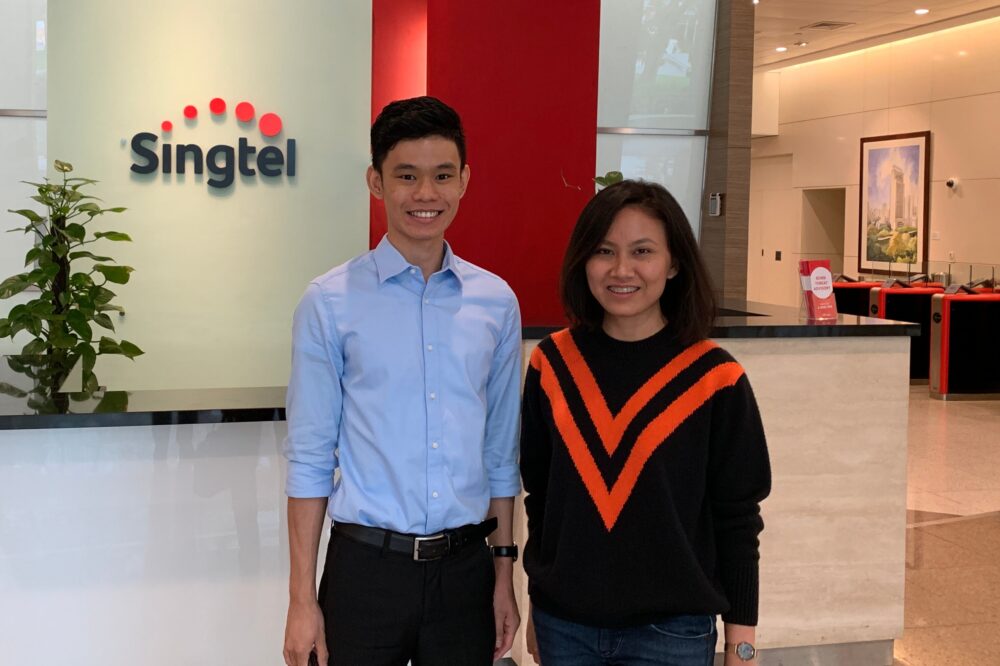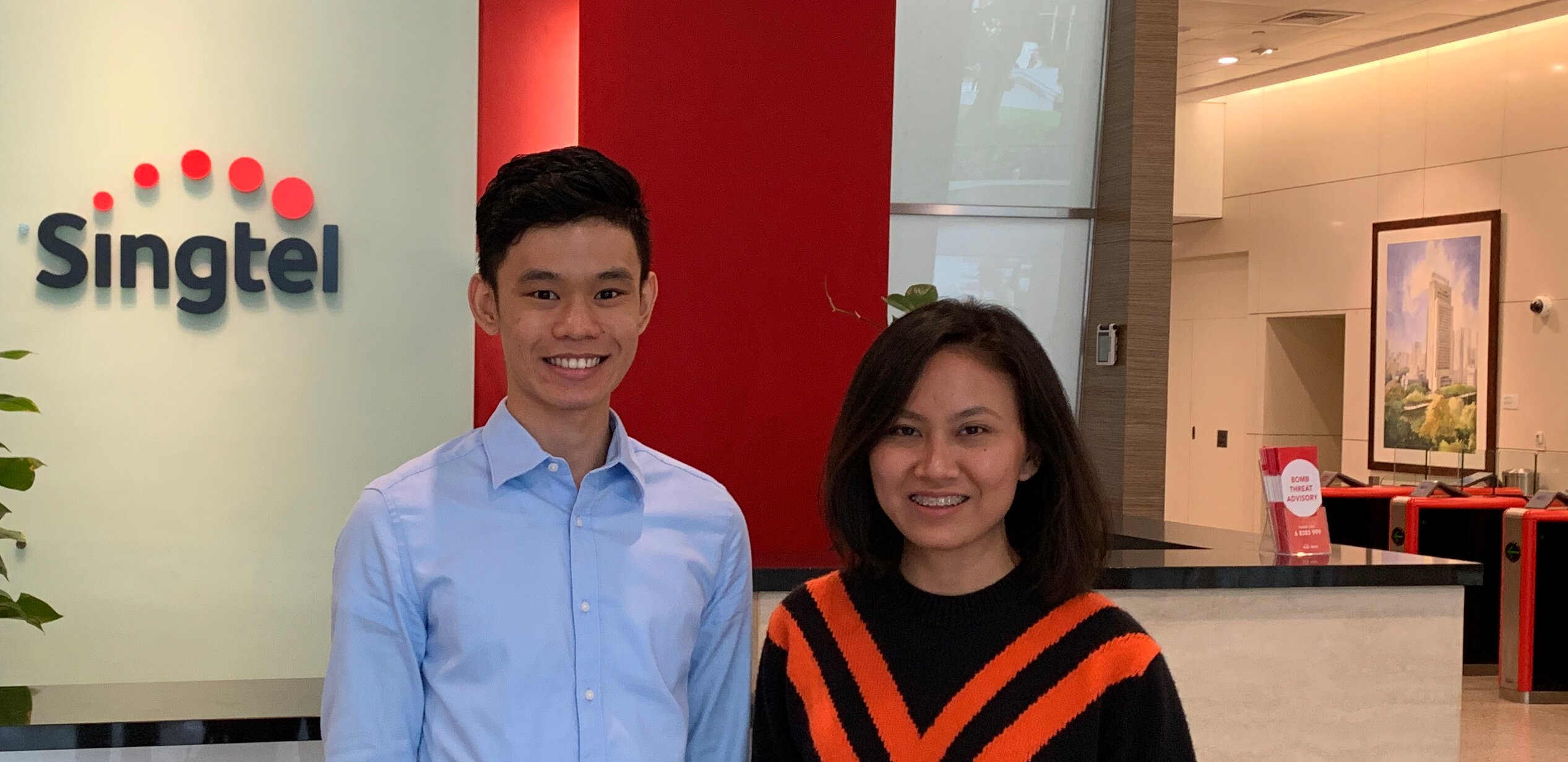Miranti is currently a Business Management Manager at the Singtel International Group. As a manager, she oversees the financial performance, long-term strategies, and up-and-coming opportunities of Singtel’s subsidiaries.
Q: Can you share more about your role as a Business Management Manager at Singtel?
Singtel does not only operate in Singapore. It has a quite significant portfolio of investments across the regions. Singtel heavily invests in overseas telecommunications companies and nimble digital companies with novel business ideas.
One of our associate companies is Telkomsel, the largest telecommunications firm in Indonesia, and I monitor the performance and strategies of Telkomsel in Singtel capacity as a shareholder. I track the business and regulatory landscape of Indonesia, manage relationships with potential and existing business partners, other shareholder, and government agencies in Indonesia, review investment and capital expenditure proposals of Telkomsel, and provide support for Singtel’s Representative in Telkomsel’s Board – essentially ensuring Singtel’s interests in Telkomsel is well managed at all time.
Q: What are some key highlights of your 4 years at Singtel?
I was enrolled in Singtel’s Management Associate programme and I have been exposed to 3 diverse business functions in my time at Singtel: procurement, treasury and business management. Because I have been exposed to varied functions, I would posit that continuous learning has been a highlight in my career so far because I have been growing in different aspects.
Besides continuous learning, I particularly enjoyed a project I did at Telkomsel where I was running a project on Telco big data. It was an exciting period of time because I was responsible for my own project and had to liaise with many internal and external stakeholders to ensure that my project ran smoothly. Telco big data also opened my eyes to the potential for disruption in the telecommunications industry and how telecommunications firms can significantly impact societies.
Continuous learning has been a highlight in my career because of the growth it brought in multiple areas.
Q: What were some key factors that you took into consideration when you selected your career at Singtel?
The first reason is that I was unsure of what I wanted to do when I was an undergraduate student. Recognising that a Management Associate programme allowed me to explore different business functions, I jumped at Singtel’s Management Associate programme, which I thought had a decent reputation.
Secondly, I did not see telecommunications as a dying business. There is vast room for technological improvements and a lot of technological advancements we see today are driven by the enhanced connectivity that telecommunications firms can offer. Furthermore, the offerings of telecommunications firms are slowly becoming commoditised and the urgency to differentiate the offerings has never been more pertinent, rendering telecommunications an expensive yet exciting field for one to be in.
Q: Was a career at a telecommunications company where you foresaw yourself to be when you were an undergraduate student?
No. I graduated with a specialisation in finance and a lot of finance students looked at banks and maybe recently to a certain extent, start-ups. Nonetheless, when I was applying for jobs, I found that Singtel did more than just selling phones – their business model is more complex than what I thought it would be as I researched more about the company. So that intrigued me into applying for the Management Associate programme at Singtel.

Miranti Lestari (right)
Business Management Manager at the Singtel International Group
Bachelor of Business Administration – Finance (2015)
Q: Do you think your BBA Finance specialisation played a big role in your career?
My Finance specialisation gave me a good foundation in understanding the business. However, in general, I personally see schools as a place where you formed the way you think and work. As I move forward with my career, having relevant work experiences along the way probably plays bigger role.
Q: Are there any insights about working at a telecommunications firm that you feel students should know about?
One of the most common misconceptions about Singtel’s business is that it only focus on mobile services in Singapore. While mobile definitely formed the core, it has grown itself to an array of extensive business lines such as cybersecurity, data analytics, digital marketing, just to name a few. Singtel has become more like digital company than a pure telecommunications firm in my opinion.
Q: What are some things Singtel looks out for when choosing future employees?
There are some crucial behavioural traits that Singtel looks out for. An ideal candidate should be curious, keen to take on challenges, collaborative and open-minded. There are usually no technical prerequisites, unless you are in the IT or Engineering teams. Especially for the Management Associate programme, Singtel looks for people who have leadership skills, are well-rounded, are willing to speak up and solve problems from a holistic point of view.




